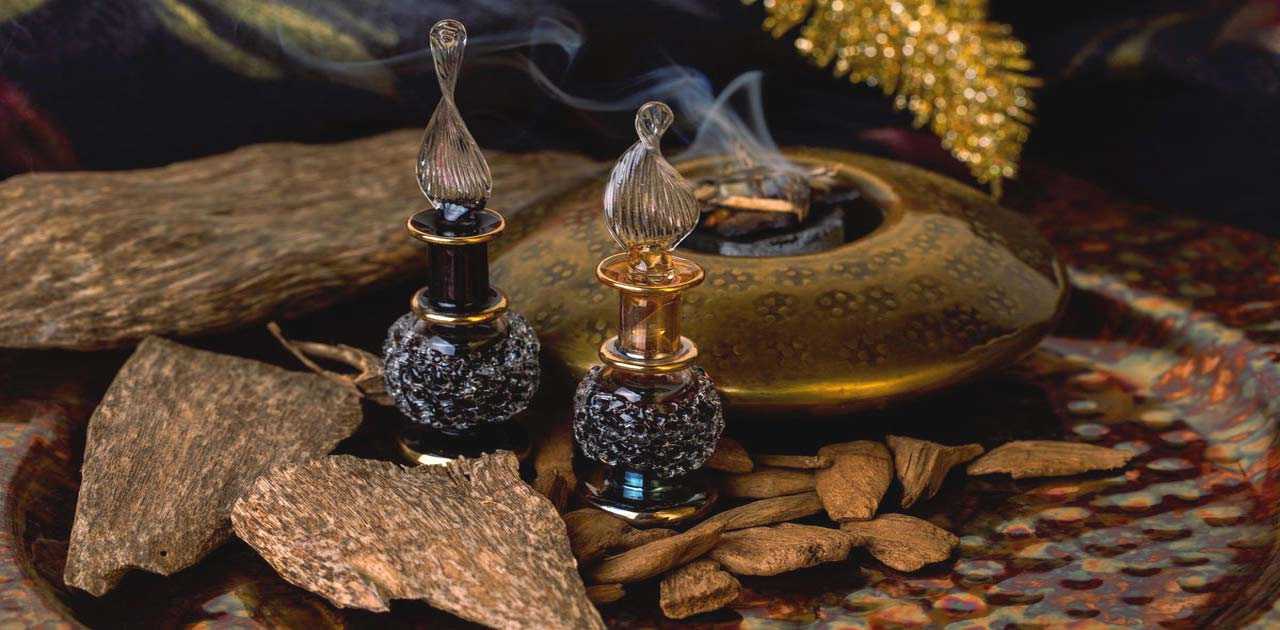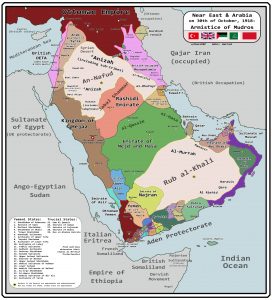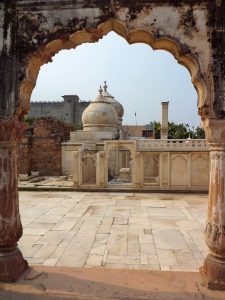#Culture
The Things He Would Say – [Part 2] – Dinner Invitation
Murid is invited to dine with a prince, and given an exciting offer.
Published

A father with a severely autistic son dreams of going to Hajj, but will it ever happen?
Previous Chapters: Part 1
Attar Maulana
At Jum’ah that week the imam said an interesting thing: a beggar begs with one hand, but we beg with two.
Keep supporting MuslimMatters for the sake of Allah
Alhamdulillah, we're at over 850 supporters. Help us get to 900 supporters this month. All it takes is a small gift from a reader like you to keep us going, for just $2 / month.
The Prophet (SAW) has taught us the best of deeds are those that done consistently, even if they are small. Click here to support MuslimMatters with a monthly donation of $2 per month. Set it and collect blessings from Allah (swt) for the khayr you're supporting without thinking about it.
As Murid was filing out with the crowd, weaving his way through the crowded outdoor courtyard in front of the masjid door, Abu Ali Al-Rashidi approached and slapped him playfully on the back. Murid stumbled and nearly fell. Abu Ali was a giant of a brother, not tremendously tall at about 5 ’11”, but as thick as a chimney stack. Though he was middle aged, with a thick black beard going to gray, his shoulders were nearly as wide as a door frame. Today he wore a beautiful suit with an actual pocket watch tucked into the breast pocket, and he smelled of some exotic perfume oil.
“That’s a great scent,” Murid observed. “MashaAllah.”
Abu Ali reached into his suit pocket and drew out a tiny bottle with a gold exterior embedded with rubies, and a stopper in the shape of a key that he turned to open the bottle.
“Hold out your wrists. We put it on the pulse points, as the warmth activates the scent.”
Murid did so, and Abu Ali dabbed some on. “This is attar maulana. Ancient scent, very rare. It is a blend of jasmine and rose, with the pheromone extract of a beaver.”
“A beaver?” Murid rubbed his wrists together and smelled. It was sweet and rich, with musky undertones. The powerful aroma made him dizzy, and Abu Ali reached out with a strong hand to steady him.
Mysterious Dinner Invitation
“I want to talk to you about something private,” Abu Ali said in a faux whisper that could probably be heard by anyone in the courtyard.
Murid was surprised. He knew Abu Ali on a casual level, but they were not what one would call friends. The big man belonged to the royal family of the former Rashidi Emirate, a once-independent state in the north of the Arabian peninsula. The Emirate had been conquered by the Saudi alliance in the early days of the kingdom. Abu Ali’s line of the family lived in exile in Portugal, or so Murid had heard.
Apparently Abu Ali had come to San Diego thirty years ago to study business, had fallen in love with a Mexican convert, and remained. He was said to be quite wealthy. Nevertheless, Murid had always found him to be a humble and gentle person.
“I need your help,” Abu Ali said. “My daughter Hiba started a job as a teacher for special needs children. She needs pointers. Could you visit us tonight and talk to her?”
“I’m not a teacher.”
“Yes, but you’re a parent and you have valuable experience.”
Murid called Juliana to watch the kids for a few hours, and after Maghreb he rang the bell of Abu Ali’s sprawling home. The inside was amazing, decorated with traditional Moroccan tilework, with ancient Arabian swords hanging on the walls.
Murid sat at the dinner table with Abu Ali, his wife and their four adult daughters. He was surprised that a traditional Arab family would let a strange man mix with the women. As the meal went on, however, he began to get the feeling that Abu Ali had an ulterior motive. Yes, the eldest sister, Hiba, did ask some questions about caring for autistic children. She was a tall girl in her mid twenties, about Murid’s height, with lovely features marred by heavy acne.
Not that Murid cared about the acne. When it came to marriage, all he wanted was a loyal Muslim woman with a kind heart. And Hiba, from what he could tell, was a lovely young woman. She had a master’s degree in education, and was soft-spoken yet witty. The combination was disarming.
Last of the Mughals
“Murid,” Abu Ali said, interrupting this line of thought. “Where are you from originally?”
“My mother is Pakistani. My father is from India. Actually, on my father’s side we descend in a direct line from Bahadur Shah Zafar, the last Mughal emperor, who died in 1862.” As soon as the words left Murid’s mouth he realized that Abu Ali might think that he was inventing this story to say, Look, I’m royalty too.
But it was true. Twenty two generations had passed since the fall of Muslim rule in India, but the family had kept careful records. Murid was indeed the descendant of an emperor.
Abu Ali grinned. “That’s amazing. Do you have a royal treasure stored somewhere?”
Was the man making fun of him? Murid smiled politely. “Hardly. For one thing, by Bahadur Shah Zafar’s time the empire was reduced to Old Delhi and nothing more. Then Zafar was exiled to Burma by the British after he opposed the East India trading company. He was forced to leave behind most of his wealth. Two generations later the family returned to India, though to Hyderabad, not Delhi. Since then we have been either merchants or warriors.”
Shelter and Shield
“I do have this, though,” Murid added. He reached under his shirt and pulled out a pendant on a chain. It was a large silver pendant shaped like a shield, lined with diamonds, sapphires and rubies. It bore the image of a Mughal dome, with an Urdu inscription in the center. The gems caught the light from the overhead chandelier and flashed, casting shimmering rays of light in every direction. A few of the women around the table gasped audibly.
“Is that real?” Abu Ali’s wife Ghaliyah asked.
“Real as rain.” Murid handed it across the table to her. “It was commissioned by Zeenat Mahal Begum for her husband, Emperor Shah Alam the Second, who ruled from 1760 to 1772.”
“What’s the writing in the middle?” Hiba asked.

“That’s…” Hiba faltered. “It’s the most beautiful thing I’ve ever heard.”
Murid glanced at her and saw that her eyes were wide.
Ghaliyah handed the pendant to Abu Ali, who studied it and handed it back to Murid, saying, ‘It must be worth a fortune.” Murid saw that if the man had harbored any doubt as the truth of Murid’s claim to royalty, it was gone now.
“Yes,” Murid assented, “but I would never sell it. It has been passed down from generation to generation in our family.” He put the necklace back on and tucked the pendant under his shirt.
Other questions followed. Abu Ali and his wife asked about the disposition of Murid’s marriage to the vanished ex-wife, and his work as a surveyor. As he spoke he felt the pressure of Hiba’s eyes upon him, and found himself beginning to sweat.
Sizing Him Up
They’re sizing me up for marriage, he thought. The man has four unmarried daughters, he must be desperate. But why me?
Not that it mattered. After his marriage to Dana had been legally dissolved, he’d tried for a few years to meet a good woman. He’d used friend connections, Muslim matchmaking websites and Imams. He’d talked to many sisters, and with two of them had progressed almost to the point of engagement. But in the end they all backed out, spooked by the notion of marrying a man with a severely autistic son and a daughter with a barbed wire tongue. In the end Murid gave up and accepted his fate, which was to remain single and devote himself to raising his children.
It would be no different with these Arab-Portuguese princesses. Nothing would come of it. Still… It would be cool to marry into a royal family. The joining of the Mughal Empire and the Rashidi Emirate. Murid was inwardly amused at the thought. How the mighty had fallen.
Oh, stop it, he told himself. They’d marry a former boy-band star with a cocaine problem before they’d marry you.
When dinner and dessert were finished Abu Ali walked him out. The last thing Hiba said to him was, “Brother Murid, you should be very proud. A lot of men would have buckled under the weight you carry. But you stand tall like the Mughal warriors you descend from.”
Murid wanted to reply, but his throat constricted and he could not speak. So he smiled and nodded his head like an idiot.
Greatest Dream
Outside, the Southern California heat had dissipated, replaced by a starry sky and a cool, salty breeze off the Pacific. He and Abu Ali stood in the driveway. Abu Ali held a leather file case in his hand, the old-fashioned kind that might hold a notebook, a daily planner and a few pens.
“Last week at family night,” Abu Ali said, “the shaykh talked about Jannah, and asked each person what they dreamed of seeing or doing in Jannah. Do you remember?”
“Sure.”
“Most people said they would like to see their family members who passed away, or meet the Prophet Muhammad (s). Some said they dreamed of experiencing life without anxiety. Do you remember what you said?”
“That I want to go to Hajj.”
“You said that before you could imagine entering Jannah, you must be a better mu’min in the dunya, and that your greatest dream is to complete the Hajj.”
“That’s true.”
“Why?”
Murid frowned. “What do you mean? It’s an obligatory part of our deen. It’s one of the five pillars of Islam.”
“I mean, why do you care so much? Islam gives you an excuse. Man istata’a ilayhi sabeelaa. ‘Pilgrimage to this House is an obligation by Allah upon whoever is able among the people.’ Surat Aal-Imran. Whoever is able, that is the key phrase. You work for the state, I know you are not rich. Do you have any savings?”
“That’s a bit personal.”
A Cop-Out
Abu Ali smiled and punched Murid in the chest. The grapefruit-sized fist drove the breath out of Murid’s lungs. Murid thought for a second the man was attacking him, then realized this was another gesture of physical affection. The guy was like some Arab Paul Bunyan who didn’t know his own strength.
“Yes, of course,” Abu Ali said. “I apologize for prying. I’m showing care for my younger brother.”
“I hate to think what it would be like if you didn’t care for me.”
Abu Ali laughed. “Like you, I am descended from warriors.”
Murid studied the big man. What an odd character he was. Welcoming and intimate, yet overbearing. He treated Murid almost like a family member.
“I have no savings,” Murid confessed. “I live month to month. My son’s special needs are costly.”
“So forget about Hajj. Use your salary for your family. Save your money to buy a house, and for your retirement. You have the excuse.”
“That’s a cop-out. Most of the people in the world are struggling financially, and that’s not new. It’s always been like that. Yet Muslims throughout history have gone to Hajj, even on foot across great distances, to answer Allah’s call. There will always be expenses and difficulties.”
“It’s not a cop-out. It is a legitimate escape clause granted by Allah to those who need it.”
Murid was getting annoyed. “Look, brother. I know you mean well. But I don’t want an escape clause. I’m not looking to simply check an obligation off my list. I have a yearning, and this yearning gets me up in the morning, it animates me. Allah has called me to His home. It’s as if Allah has cast me a rope, and I cling to it like a drowning sailor. I want to stand on Arafah and plead my case to Allah. Sometimes I feel like…” Emotion rose in Murid’s chest like the Pacific tide. He had to stop speaking so he wouldn’t break into tears. He took a deep breath and let it out. “Sometimes life is hard. And I know there is no way forward except with Allah. And there is no better place to ask Allah than in the place where everyone who ever lived will be resurrected. You don’t have to understand this. Maybe you cannot.”
Abu Ali gazed at him seriously, his deep-set black eyes glittering with unknown pain. “I understand it very well, akhi. I am an exile from a home I can never return to.” The large Rashidi tribesman opened the leather file case, removed a fat envelope, and handed it to Murid.

Murid opened the envelope. It was filled with $100 bills. Thousands of dollars worth. For an instant his heart soared – he could go to Hajj! – but the elation faded like the last warmth of summer when the frost of winter arrives. He remembered the shaykh’s words at Jumah: We beg with two hands, not one. I’m no street beggar, Murid though. I beg only from Allah.
He extended the envelope to Abu Ali. “I cannot take this. Thank you for the gesture, Allah give you life. But no.”
***
Next: Part 3 – Ulterior Motive
Reader comments and constructive criticism are important to me, so please comment!
See the Story Index for Wael Abdelgawad’s other stories on this website.
Wael Abdelgawad’s novels – including Pieces of a Dream, The Repeaters and Zaid Karim Private Investigator – are available in ebook and print form on his author page at Amazon.com.
Related:
Keep supporting MuslimMatters for the sake of Allah
Alhamdulillah, we're at over 850 supporters. Help us get to 900 supporters this month. All it takes is a small gift from a reader like you to keep us going, for just $2 / month.
The Prophet (SAW) has taught us the best of deeds are those that done consistently, even if they are small. Click here to support MuslimMatters with a monthly donation of $2 per month. Set it and collect blessings from Allah (swt) for the khayr you're supporting without thinking about it.
Wael Abdelgawad's novels can be purchased at his author page at Amazon.com: Wael is an Egyptian-American living in California. He is the founder of several Islamic websites, including, Zawaj.com, IslamicAnswers.com and IslamicSunrays.com. He teaches martial arts, and loves Islamic books, science fiction, and ice cream. Learn more about him at WaelAbdelgawad.com. For a guide to all of Wael's online stories in chronological order, check out this handy Story Index.


Faith, Identity, And Resistance Among Black Muslim Students

Moonshot [Part 12] – November Evans

From The Prophets To Karbala: The Timeless Lessons Of Ashura For Muslims Today

Moonshot [Part 11] – The Fig Factory

Nationalism And Its Kurdish Discontents [Part II of II]: Kurds And Turkiye After Ottoman Rule

Moonshot [Part 11] – The Fig Factory

Moonshot [Part 12] – November Evans

Moonshot [Part 10] – The Marco Polo

Moonshot [Part 9] – A Religion For Real Life

Genocidal Israel Escalates With Assault On Iran

[Dhul Hijjah Series] Calling Upon the Divine: The Art of Du’a (Part 1)

IOK Ramadan 2025: Four Steps | Sh Zaid Khan

IOK Ramadan 2025: Do Your Best | Sh Zaid Khan

IOK Ramadan 2025: Giving Preference to Others | Sh Zaid Khan






Shoaib
July 8, 2024 at 9:29 AM
Jazakallah Khair Br Wael for another great installment. Wanted to share some thoughts as I was reading it.
Loved Mina’s “bad parenting” line! So in-character for her. Actually, the entire vignette with the shooting star was touching and charming, a moment of wonder that the family shared together.
Small typo in the beginning: “It was windy, and Junaid gripped the steering wheel…” I think you meant Murid instead of Junaid.
I was not sure what to make of Abu Ali as a character. He is a rich descendant of royalty, yet he goes to family night at the local masjid. He wears expensive suits yet he mingles with people of lower socioeconomic classes like Murid. He has taken a liking to Murid, hinting that he wants him as a son in law. Most rich people don’t act like that. Without any other compelling explanation of why he is so down to earth despite his wealth, Abu Ali doesn’t seem real for me. It feels like he is only there to serve the purpose of testing Murid with money. I am also not sure if he was seriously considering marrying his daughter to Murid, or whether the whole dinner invitation was a test to see if Murid was a worthy recipient of Abu Ali’s Hajj sponsorship?
“We beg with two hands, not one.” This quote was interesting when it was first introduced, but when Murid invokes it at the end, it was so powerful! I am left still pondering over it.
On an unrelated note, I believe you did a book signing at ISNA in the past. Any chance you will be doing the same this year at the upcoming conference?
Bint Farooq
July 18, 2024 at 3:57 PM
السلام علیکم و رحمت اللہ وبرکاتہ
The writing style is so filled with warmth and poses a serene tone..I love how Murid kind of breaks down and says only Allah can solve my case,and I want to plead to Him in arafah.It landed straight on my heart.
We need more muslim tales like this and also Bismillah the beast was amazing,it was from another author I believe.The point being that in fairytales like cinderella and sleeping beauty,the miracle is the prince,here the miracle is from Allah!
Also I think getting a bit into fantasising is fun,thats what these sorts of tales are about!
Surah Yasin
July 27, 2024 at 10:18 AM
Assalam Alikum , jazak allah Khier
Umm Zaynab
July 28, 2024 at 10:32 AM
JazakAllah Khair for this, looking forward to Part 3 inshaAllah!
Wael Abdelgawad
May 29, 2025 at 1:55 PM
Shoaib, I just noticed your question. Yes, I’ve given lectures and book signings at ISNA and ICNA. What I need to do is publish a new book, then I’ll have an excuse to hit them up to invite me back. Which logically should be Omar Bayano and the Day of the Dogs, since it’s already finished and just needs a final editl.